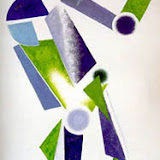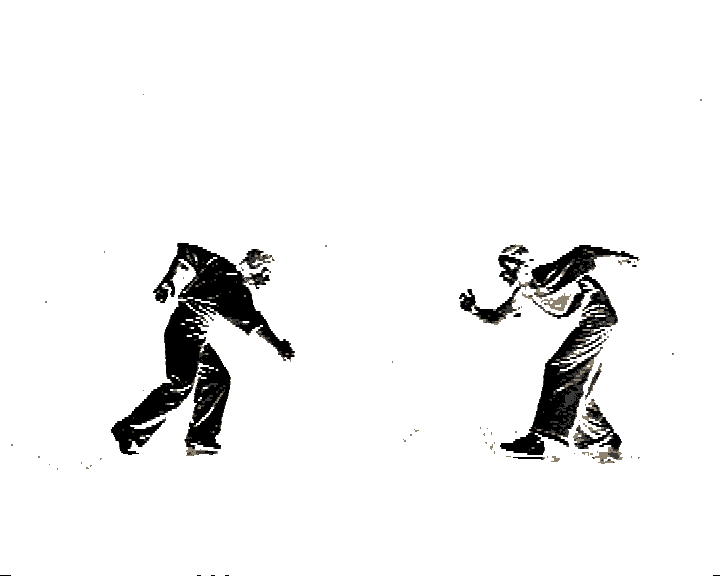Drafting your Actor's Text
Acting2 pages!
Working with yourself.
Rehearsing for (1) Character and (2) Situation
{*} THEATRE ... Director's Mind, Directions and Actor's choices : I have pages/chapters on DIRECTOR in Acting 1, 2, 3, Total Actor!
|
2009 : After Auditions
Drafting your Actor's Text Acting2 pages! Working with yourself. Rehearsing for (1) Character and (2) Situation
{*} THEATRE ... Director's Mind, Directions and Actor's choices : I have pages/chapters on DIRECTOR in Acting 1, 2, 3, Total Actor!
|
|
"Theatre is not a mirror but a magnifying glass." Mayakovsky
[ advertising space : webmaster ] text LINKS Use the last week for run-throughs (including the tech weekend), but contunue to fix separate segments; call them before the rehearsal time and keep after hours. The moment actors went through the entire show, they need tuning (they know it); step in and work individually, as you did during week two. Go for their start-moment (or "moments of truth"), monologues. Also, go for each major character first entrance; make sure there is an image to remember. The same with the last line! If during the tech they still remember their line, there must be some true problems (unless your have bad cast and manager); check what they don't remember -- maybe they do not UNDERSTAND what they are doing. After the preview night -- leave them all alone!! Let the public do the directing (you can get in during the next week pickup rehearsal). Stay away from your shows; do not watch each and all shows! Sometimes it's needed to step in and fix things here and there (do it individually, make sure SM knows the changes -- don't mess with the blocking and cues). Spend time reflecting on the show (and start working on the next show immidiately!)  Theatre w/Anatoly Featured Pages: System of the Method Not enough is written about the most important in theatre -- the rehearsals! vtheatre.net
Key Terms: Glossary
|
 |
| theatre |
...
Rehearsals -- the search for style...Maybe not right away, but eventually, many pages in different places (acting, directing) could be linked here, theatre theory directory. "Rehearse" pages should have a place, where the paradox "Each Rehearsal is a Show, Each Show is a Rehearsal" could be explained.
Well, this is the place. If only actors could get it right, we save so much time. Too much time is wasted (in life, in general), but we can't do it on stage. [ Should I have "Rehearse Page" in The Book of Spectator? What is public's rehearsals? ]Where did I hear it -- "Life is not a dress rehearsal"? No rehearsals? Period. Scary.
Do they understand it, the actors?
...
...
This is the true working process, this is more important than any other aspects of the theatre process....
Nevertheless, each time I ask my students -- how do you rehearse? -- there is a silence, a pause.
They don't understand the question.
I love rehearsals and I do not like to watch my own shows.
They don't understand it either.
Rehearsals is the working time!
What do I do?
I represent them all -- the public, the text, the actors. I am a mediator, a machmaker, a midwife. I put it all together.
After you cast the show, you have to go back to the script and find the ways the text could work with the new "partner" -- your actors. Now instead of your imagination only you can try on "live" material! Many things won't work, but you will find many unexpected discoveries. This is why you, director, must have (many) choices. "One" way is not a choice!
If you read my pages on "chronotope" of the spectacle, you understand that only now with your actors you can "write" your stage messages in time and space. Now you can try your "visions" in practical terms of Mise-en-Scene. You better be ready! One page = one hour. Look at your schedule and budget your time. And remember, there is time for "you" directing and trying and the time they, your actors, need to enter the "world of the play"... Remember, you began your journey way ahead of them.
I do not know what I like better; the ideas or the problems... The ideas are born from my problems. And actors' problems are my problems. If they have no problems, no questions -- I am in trouble. But first you have to get the play under control, to make sure that they overcome the tyrany of the text. Script is for them, not the opposite! Don't let your actors read the play without action ideas, move them, let them move -- even if, they are not ready. You lead, they will follow.
Oh, yes, go for improvization right away; you always can return back to the play. The words must become their words before they memorize them. And, listen, easy with the blocking! Directions -- yes, but wait for their instincts, their moves, their impulse. Yes, yes, take the pages away from them! Strip them from the defence the words give them, see much they got already. Give the pages back -- and take them away again. Run the scene until the two will meet... Most likely they won't even remember how did it take place. The way we do not remember how we began to walk or talk...
Introduce the working prop and costumes as soon as possible. Structure the main configuration of the space they will exist in on stage; table, chairs and so on. Let them get used to the "world of the show"....
At some point you will notice that most of your work with actors is done, in fact, they want you to leave them alone, they have to focus on their characters (they will ask you, when they, as teenagers, need your help). Listen, you have to work with designers; this is the tech weekend... Look, if you did everything right, the show has it own inercia by now and will roll into spectacle the night the public join the stage. Don't push Whatever you didn't get, unlikely you can get at this stage. You can assist, turn, cut a bit... but your directing process is over. Think about another show, another play... Let it go, let your actors and your public to have it. Enjoy them enjoying the show...
Do yourself a favor, learn from the mistakes you made. They are more valuable for your future productions. What you got, you have it. Watch what you didn't get. Only if you see things you could done differently (not them), you still can see the show. If not, why bother to come to see it.
|
All directing pages are moved to direct.vtheatre.net; five subdirectories (not developed yet).
Pages are to support THR331 Fundamentals of Directing. Subscribe to directing forum In class: directing genre: tragedy, comedy, drama Online plays and director's notes are in SHOWS directory Spring 2003: Don Juan, Moliere 2004: Wild Strawberries, Bergman ...
|


 [ use Google to search my both, theatre (vtheatre.net) and film (filmplus.org) sites! subscribe to forums: dramlit, directing, acting and etc. ]
©2004 filmplus.org *
[ use Google to search my both, theatre (vtheatre.net) and film (filmplus.org) sites! subscribe to forums: dramlit, directing, acting and etc. ]
©2004 filmplus.org *
groups.google.com/group/acting2

 Film-North * Anatoly Antohin * eCitations
Film-North * Anatoly Antohin * eCitations
© 2005 by vtheatre.net. Permission to link to this site is granted. books.google.com + scholar.google.com
cite: anatoly antohin. URL + date [ my shows : 1. writer * 2. director * 3. dramaturg * 4. actor ]







